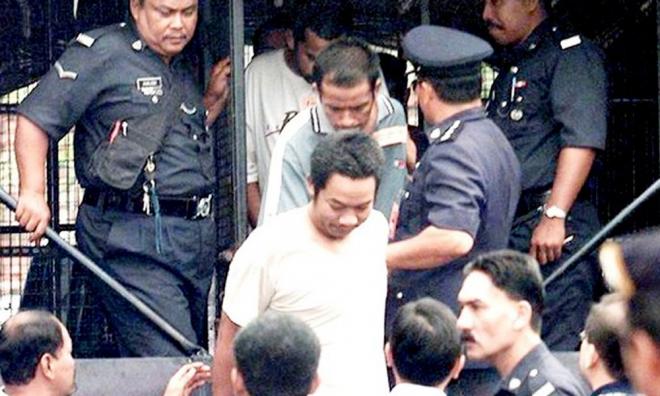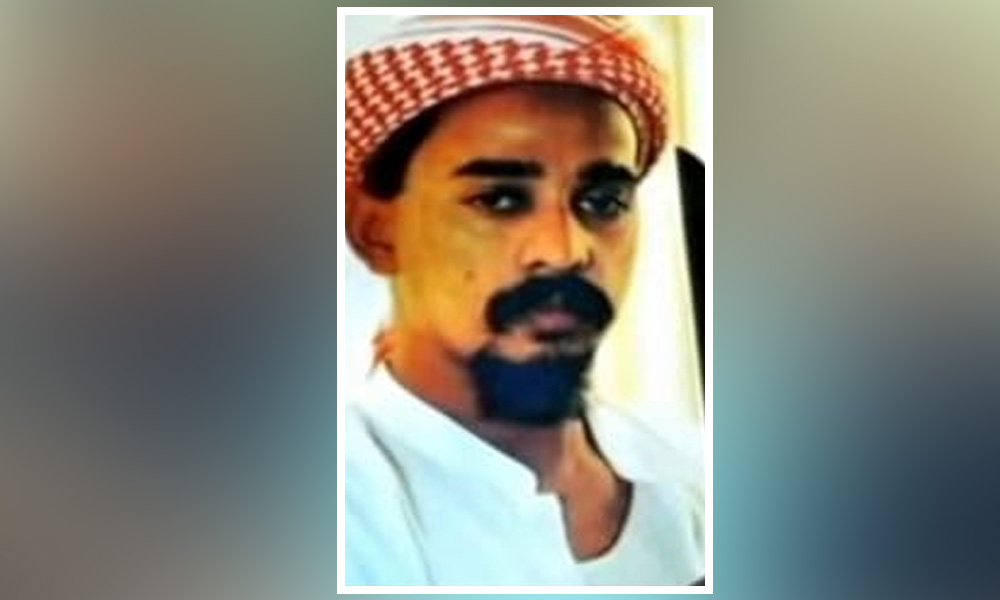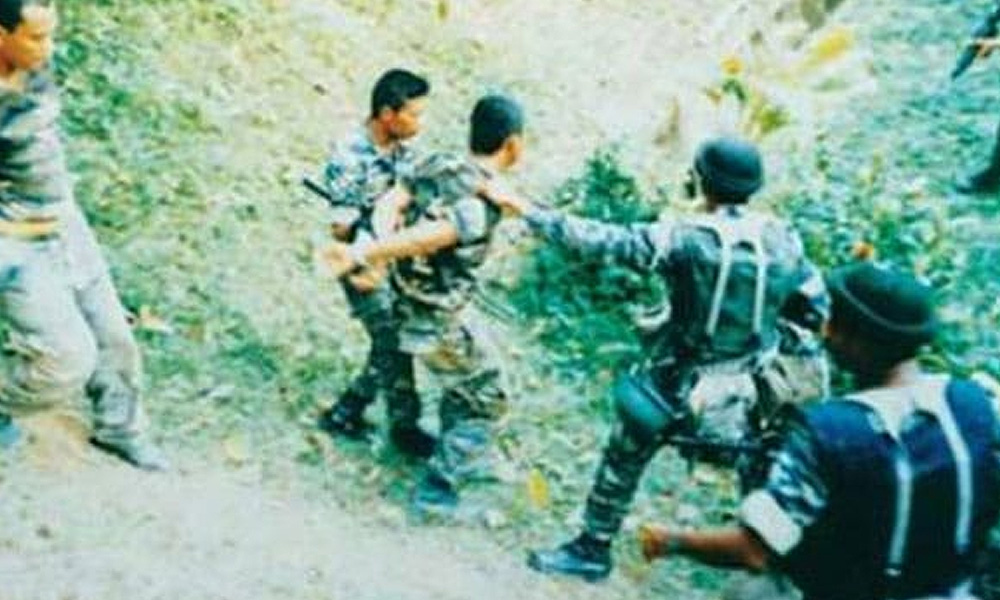
KINIGUIDE | On Merdeka Day, 13 men were granted a royal pardon. Malaysiakini explains what they did 20 years ago which landed them in jail.
How could a ragtag group take over an army camp?
On July 2, 2000 a little-known group calling themselves the Persaudaraan Ilmu Dalam Al-Ma’unah (Brotherhood of Inner Power) shocked the nation when they carried out a daring raid on a Malaysian Army Reserve camp in Gerik, Perak.
The group, better known as Al-Ma'unah, was led by a fanatical ex-army private Mohamed Amin Mohamed Razali, who combined extreme religious and political beliefs.

Impersonating army officers, 20 members of Al-Ma’unah seized weapons from the armoury at the 304th Malaysian Army Reserve (Rejimen Askar Wataniah) camp.
The Al-Ma’unah members came dressed up as senior military officers and arrived at the reserve camp in three well-disguised Pajeros.
They pretended it was a surprise inspection and took possession of much of the weaponry and communications there. They were believed to have even a forged letter from the Defence Ministry, using the real letterhead.
They took hold of a large cache of arms including 97 M16 assault rifles, two Steyr AUG rifles, four GPMGs, six light machine guns, five grenade launchers, 182 M16 magazines, eight extra barrels of GPMGs, three extra barrel of LMGs, 26 bayonets, 9,095 rounds of 5.56mm and 60 rounds of 40mm ammunition.

After the raid on the army camp, what did they do?
The group then travelled 100km south and holed themselves up in a village called Sauk near Kuala Kangsar and issued a demand that they would move to besiege Kuala Lumpur and wage a "holy" war if then prime minister Dr Mahathir Mohamad did not resign within 24 hours.
Amin, whose ideas were of the Islamic extremist variety, also despatched some members to bomb the Anchor and Carlsberg breweries in Petaling Jaya and the Hindu temple in Batu Caves, although only minimal damage was inflicted. It was later theorised that Amin was trying to trigger a coup attempt or foment racial and religious strife through his actions.
Police responded by surrounding the Al-Ma’unah camp and a group of security personnel were deployed to penetrate its perimeter. However, three were caught by Al-Ma’unah – police personnel Mohd Shah Ahmad and R Saghadevan, and army officer Matthew Medan. A civilian, Jaafar Puteh, who had the misfortune to wander into the camp while looking for durians, was also taken hostage.
The security personnel were tortured by Al Ma'unah members. Matthew was shot dead by a member of the group.
After three days of tense stand-off, a shootout took place between Al Ma'unah members and security forces. When one Al-Ma'unah member was killed, Amin, in retaliation, killed Saghadevan.
The siege finally ended on July 7 when security forces, including the army 22nd Grup Gerak Khas (22nd GGK) and police VAT 69 Pasukan Gerakan Khas, stormed the camp in Operation Dawn.

When the militants realised they were hemmed in, Amin and his men finally agreed to surrender. During the surrender, Amin lost his temper and attempted to shoot Army Field Commander Zaini Mohamad Said at point-blank range.
Zaini flicked the gun and Amin’s shot killed his own man, Abdul Halim Ali.
Amin and his followers were later brought to trial on charges of, among others, waging war against the Agong. He and two of his lieutenants, Zahit Muslim and Jamaluddin Darus, were eventually sentenced to death, as was cult member Jemari Jusoh who had executed Iban commando, Matthew.
Fifteen other members were given life sentences by the Kuala Lumpur High Court on Dec 28, 2001, on charges under Section 121 of the Penal Code with “waging war or attempting to wage war or abetting to wage war against the Yang di-Pertuan Agong or State Ruler or the Yang di-Pertua Negeri”.
Meanwhile, 10 other members who pleaded guilty to an alternative chargeof preparing to wage war against the Yang di-Pertuan Agong were sentenced to 10 years' jail each by the High Court.
Amin was eventually hanged on Aug 4, 2006, a week after Zahit, Jamaluddin and Jemari were executed.
Was Al-Ma’unah the only cult-influenced uprising in Malaysia?
No, the Al-Ma’unah incident was not the first time extremist groups mixing political and religious views came into conflict with the authorities.
During the Memali incident (below) in Baling, Kedah on Nov 19, 1985, there was a face-off between the police and supporters of Ibrahim Mahmud @ Ibrahim Libya, who had twice contested general elections under the PAS banner.
After nearly 200 police officers laid siege to a group of around 400 of Ibrahim’s fanatical followers, the latter group worked themselves into a frenzied state and charged the police resulting in the deaths of 14 civilians including Ibrahim and four police personnel.

In 1994, the Al-Arqam movement was proscribed by the National Fatwa Council in August and a few months later, it was banned by the federal government. Senior Al-Arqam leaders, including its head Ashaari Mohammad, were detained under the Internal Security Act (ISA) amid claims that the 10,000-strong movement was setting up an army.
Five years after the Al-Ma'unah raid, the Sky Kingdom commune in Besut, Terengganu was destroyed in July 2005 by masked assailants acting with the complicity of the authorities. The Sky Kingdom’s founding father Ayah Pin fled into exile while some of his devotees were charged with following a deviant sect and apostasy.
After 20 years, how many Al-Ma'unah members left?
Not much was heard of the remnants of the Al-Ma’unah movement until Yang di-Pertuan Agong Sultan Abdullah Shah granted a royal pardon to 13 men who were serving life sentences in conjunction with the country’s 63rd National Day on Aug 31, 2020.
According to Istana Negara's Comptroller of the Royal Household, Ahmad Fadil Shamsuddin, the pardon was due to their good behaviour while in prison and meant for the 13 to return to the society, turn over a new leaf and live a normal life.
"Sultan Abdullah also hopes that the 13 would reflect on their mistakes, to repent and evaluate their relationship with God, their family and society,” he said.
Given that there were originally 15 followers handed the life sentence, it is likely that two of the followers passed away in prison.



No comments:
Post a Comment
Note: Only a member of this blog may post a comment.